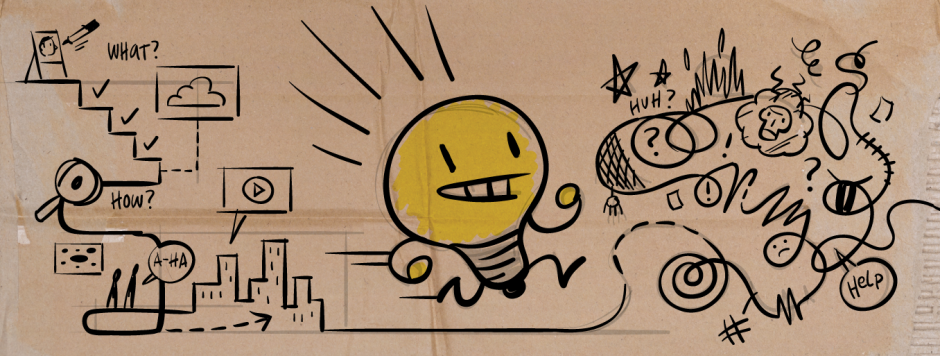The road less traveled: A life in information design
When I graduated college with my degree in graphic design, I figured I was steaming headlong into a world of logos, posters, and tri-fold brochures. Whether that work would be for local bands, an ad agency, or an industrial manufacturer, I had no idea. I just knew that it was sure to be my destiny and I was good with that. After all, that’s exactly what I studied.
Fast forward to today. From the hundreds of student portfolios I’ve reviewed it seems like most design graduates today are planning on a life of promotional branding. I see lots of album covers, restaurant identities, cause posters, and labels for bottled water. And that’s great. I also see many aspiring illustrators who plan to live the freelance life and create children’s books—which can be rewarding but definitely is a tough road.
But there is another way to go. A road less traveled.
It’s called information design.
Information design is the practice of presenting complex information in an efficient, understandable way.
It combines graphic design and illustration skills with research and storytelling. It’s perfect when you’re looking to visualize how a system works, the way a process flows or why a new product is much better than another product. That may sound like dry stuff but it’s not if you enjoy continually learning about a wide variety of new things.
Here’s a sampling of the projects we’ve taken on just in the past few months:
- How your thyroid works
- How and why the IRS must transform their approach
- How student data can improve education
- What the heck is Kombucha?
- Whether math is a natural or a human invention
- How cloud-based infrastructure supports intelligence gathering for homeland security
- An innovation workshop for pediatric trauma
- Why too much sugar is toxic to the human body
- The extent to which GMOs are used today
I still love logos and packaging and such, but I’ve come to realize that really important stories—the ones that change peoples’ lives and do real good in the world—can’t be told with a simple, clever mark. They require pictures and words and digging deep. We love wrapping our heads around complexity and feel a real sense of satisfaction when we can translate a tangle of information into an exciting full-page magazine spread, an eyeball-grabbing YouTube video, or even a quick and fun Instagram post.
When I was starting out, I never, ever considered that I’d be doing this for a living. But now that I do, I can’t imagine doing anything else. I know it’s not for everyone, but if the projects we take on sound appealing, we’d love to hear from you. Our team is growing.
